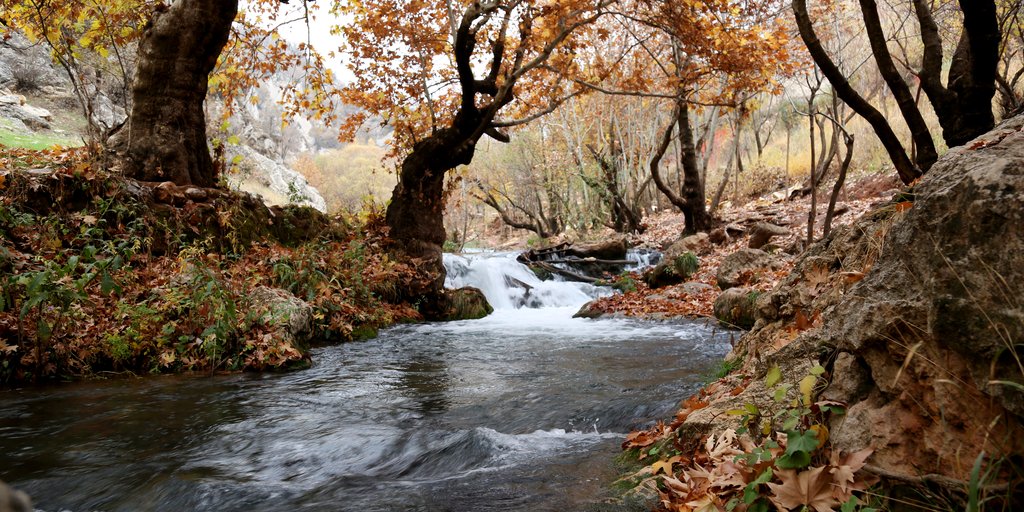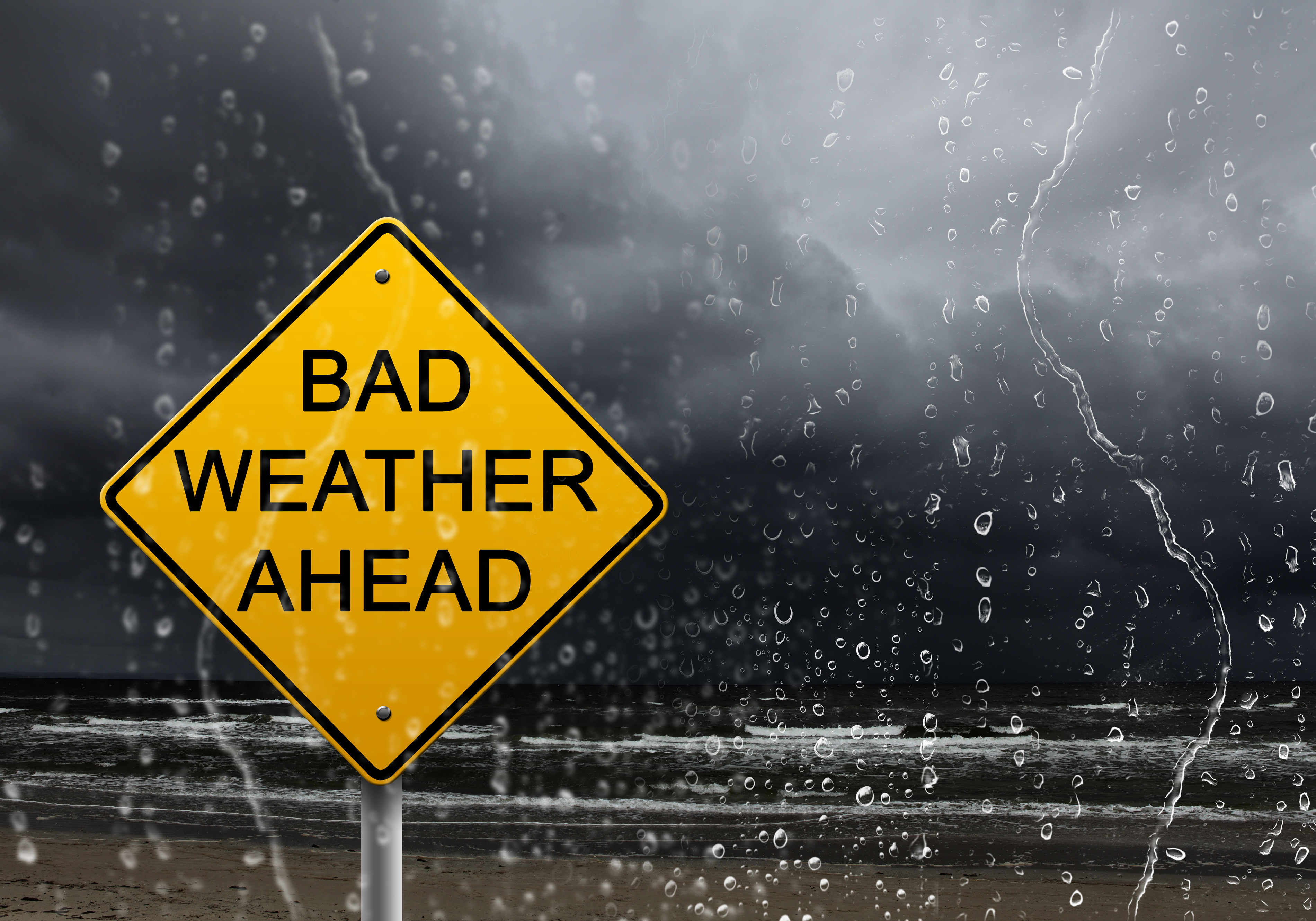“God… A Very Present Help”

Psalm 46
Two truths of great practical importance for believers of every dispensation are brought before us in this beautiful Psalm. In the presence of the upheavals and conflicts of a godless world, we are reminded, first, that God is “a very present help in trouble.” Second, in order to realize, and obtain, the present help of God, our part is to “be still” and know that God is God (verses 1 and 10). Only faith can enter into these truths. Flesh can lean upon an arm of flesh; but flesh can neither trust in God, nor “be still” and wait for God to act.
Verse 1 presents the great theme of the Psalm—God, our refuge, strength, and present help in trouble. Verses 2 and 3 the trouble and confusion of the world through which we are passing. Verses 4 to 11, the means whereby God sustains the faith of His people so that they are enabled to “be still” and prove God to be “a very present help.”
The Present Help
(Verse 1). We do well to notice the little word “our” in the opening verse. It is true that God is a refuge; but believers can say, “God is our refuge.” The world has those to whom it looks for protection, and guidance, in the time of trouble. Believers have in God their refuge from the storms and distresses of life. Moreover, God is our “strength” in weakness, and “a very present help in trouble.” The better and more exact translation is, “a help in distresses very readily found.”
To realize, however, that God is “a very present help,” calls for the exercise of faith, for His present help is not always immediately apparent. Sometimes we have to wait for the manifestation of His present help. Our natural tendency is to endeavor to extricate ourselves from trouble by our own efforts, and God may, for our blessing, keep us waiting until we have learnt that we are utterly without strength to meet the trial, and there is nothing left for us but to “be still” and learn that God is God.
Was it not thus, in the gospel day, that the Lord dealt with Martha and Mary when faced with the sickness of their brother? They were in sore trouble, and in their distress the Lord was their refuge. They rightly turned to Him and spread out their trouble before Him. They said, “He whom Thou lovest is sick.” The Lord was indeed “a present help,” though His help was not immediately forthcoming. Having received the urgent appeal of the sisters, we read that “He abode two days still in the same place where He was.” Apparently, He was doing nothing. He waited until death closed all hope in human efforts, and there was nothing left for the two sisters but to “be still” and learn that God is God.
This was indeed a trial of faith. Martha’s faith was not equal to sitting “still,” for we read that “Martha, as soon as she heard that Jesus was coming, went and met Him;” but Mary “sat still in the house.”
Then we see how graciously the Lord revealed Himself to Martha as “a very present help in trouble.” Martha said, “I know that he shall rise again…at the last day.” The Lord replied, “I am the resurrection.” Then Martha’s thoughts travel back to what had been counseled in times past as to the Lord, for she said. “Thou art the Christ, the Son of God, which should come into the world.” Her faith believed the great things the Lord will do in a day to come, and she believed in the Lord as connected with all the counsels of God in times past, but her faith was not strong enough to “be still” and believe in the Lord as the great “I am”—the present help in trouble.
Have we not to confess that, too often, this is our difficulty. We can believe in the power of God put forth in times past and that His power will be manifest in days to come, but we are slow to believe that God is so truly “a very present help” that, when there is no duty to be fulfilled, we can “be still” and wait for His help to be made manifest.
The Trouble
(Verses 2, 3). The second and third verses describe the trouble that necessitates a “refuge,” requires strength, and calls for “present help.” The world, in which the godly man finds himself, is in turmoil and upheaval. The waters roar, and the mountains shake with the swelling thereof. Often in Scripture the sea, in its restlessness, is used as a symbol of the nations in a state of turmoil (Isaiah 5:30). Today, can we not hear the roar of the waves as, in every part of the world we see the nations in a state of upheaval, revolution, and conflict? As a result, ancient constitutions that have existed for centuries, and established forms of government that seemed as stable as the mountains are being overthrown by the rising violence and increasing corruption of men. Little wonder that men’s hearts are “failing them for fear and for looking after those things which are coming on the earth” (Luke 21:26). But, says the Psalmist, “Therefore will not we fear,” for “God is our refuge, and strength, a very present help in trouble.”
The way in which the faith of God’s people is sustained in trouble
What then is the secret that strengthens the people of God to pass through the terrifying conditions of the world without “fear”; that, in the presence of change and upheaval, enables them to “be still,” and realize that God is “a very present help in trouble”?
(Verses 4–6). First, God sustains the faith of His people by unfolding to them the secret of His purpose. In this passage the purpose of God is brought before us in the river and the city of God: “There is a river, the streams whereof shall make glad the city of God.”
Through all time, with its changes, upheavals, and conflicts, there flows the river of God’s pleasure. No power of the enemy, no violence and corruption of men, no failure of the saints, can thwart God in carrying out His deep eternal counsels. Dispensations come and go; empires rise and fall; every testimony that God commits to the responsibility of men breaks down in their hands. But, overall, and through all, God is carrying out His purpose for the glory of Christ and the blessing of His people, earthly and heavenly.
Secondly, all the blessing that God has purposed for Christ and His people centers in the city of God. The Psalmist looks beyond the desolations of the actual Jerusalem of his day, and looking by faith into the future, He sees the city according to the counsels of God. There rises before his vision a city of gladness, a “holy place,” a city that “shall not be moved,” with God dwelling “in the midst of her.” So, too, in the presence of all the turmoil and confusion in the world by which we are surrounded, and the corruptions of Christendom, the believer walks in the light of the heavenly city. We see “the New Jerusalem”—a city of gladness where all tears will be wiped away, where there shall be no more death, neither sorrow, nor crying, neither shall there be any more pain. We see, too, that it is a holy city into which nothing that defiles will ever enter; we see that it will not be moved, for it is a city that hath foundations. Above all, we see that “God is in the midst of her,” for we read “the throne of God and of the Lamb shall be in it.” Thus, our faith is sustained by the river of God’s pleasure, and “the city which hath foundations, whose builder and maker is God” (Hebrews 11:10).
Thirdly, the Psalmist sees that though the nations may rage against God’s city, yet “God shall help her, and that right early.” There is a better, and more beautiful, translation that reads, “God shall help her at the dawn of the morning” (Darby). So, again, our privilege is to “look beyond the long dark night and hail the coming day.” On every hand we see the nations raging, the kingdoms of the earth being overthrown—the waters roar and are troubled, and the mountains shake; but, even as the Psalmist could say, “He uttered His voice, the earth melted,” so we wait to hear the voice of the Lord when He shall say, “Arise, my love, my fair one, and come away.” Then indeed “the dawn of the morning” will come, the day will break, “and the shadows flee away.”
(Verse 7). Fourthly, amidst the deepening shadows of the night, until the dawn of the morning, we can say with the Psalmist, “The LORD of hosts is with us; The God of Jacob is our refuge.” The LORD with all power at His disposal, and the God of grace that can take up and bless a poor failing man like Jacob, is with us, and our refuge. When the day dawns we shall be with Christ in the glory of that day; in the meantime, He is with us as we pass through the sorrows of the night. He “died for us that, whether we wake or sleep, we should live together with Him.” Seeing “He hath said, I will never leave thee nor forsake thee…we may boldly say, The Lord is my helper, and I will not fear what man shall do unto me” (Hebrews 13:5–6).
(Verses 8, 9). Fifthly, the Psalmist sees that in due time God, Himself, will deal in judgment with all the evils of the world; and after the “desolations” of judgment, He will bring in the blessings of the reign of Christ, when wars will cease unto the end of the earth. Men, by their own efforts and wisdom, through leagues, and pacts, and conferences, are seeking to bring about universal peace and introduce a millennium of prosperity without God and without Christ. The Christian who sees that his blessing is bound up with the city of God, and who knows that God will deal with the evil of this world, refuses to be linked up with man’s futile efforts to end the world’s unrest.
Thus, that we may be delivered from all fear, in the presence of so much that would make the natural heart tremble, we are instructed in the secret purpose of God that cannot fail. We see by faith the city of God shining before us in all its glory and beauty; we wait for the dawn of the day; and, in the meantime, we have the Lord with us to deliver us from every fear, a refuge from every storm. Furthermore, we know that in due time God will judge the wickedness of men and bring in universal peace.
(Verses 10, 11). Only as these great truths are held in living faith in our souls shall we be able to “be still” in the presence of the world’s unrest, even as the Lord, Himself, could sleep in the storm. Our danger is that, in the presence of the increasing evils of the world, we may get over-occupied with events and lose sight of the city of God, and thus be tempted to join with men in their efforts to combat the evil. To act thus is to leave God out and seek to meet the evil by human wisdom and human power. If such efforts had any measure of success it would only lead to the exaltation of men. Our part is to “be still,” and wait for God to act for His own glory, for God has said, “I will be exalted among the heathen, I will be exalted in the earth.”
Only as we are “still,” shall we be kept in the blessed realization that the Lord is “with us,” “our refuge and strength, a very present help in trouble.”





